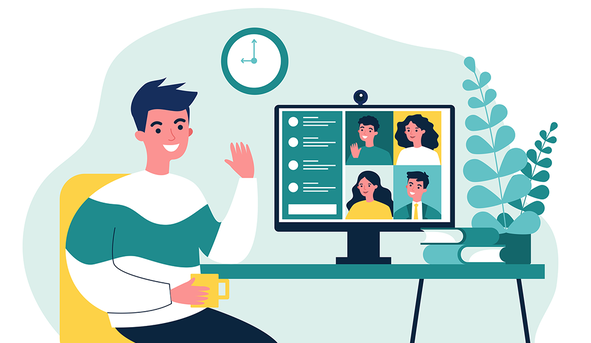|
“Incorporating social support and connections is critical for overall health and for healthy habits to be sustainable.” (Martino et al., 2017).
According to a study published by the American Journal of Lifestyle Medicine, social connection is a pillar of lifestyle medicine. Humans are wired to connect, and this connection affects our health. Researchers note that there is significant evidence of social support and feeling connected as helping people maintain a healthy body mass index, control blood sugars, improve cancer survival, decrease cardiovascular mortality, decrease depressive symptoms, mitigate posttraumatic stress disorder symptoms, and improve overall mental health. A study conducted by Massachusetts General Hospital following the pandemic also concluded that social connection is the strongest protective factor for depression. Now, what can we do to stay connected with our family and friends during this remote, virtual world? Here are five ways you can connect with others to protect your mental health while upholding social distancing guidelines: 1. Maintain contact with existing friends and reconnect with your old friends. This is also applicable to family members. The goal is to take advantage of the readily accessible communication tools and make an effort to carve out time to call or text the people you care about at least once a week. 2. Remember that it’s not the quantity of social relationships but the quality that really matters. One size does not fit all. While an introvert might need one confidante to fend off loneliness, an extrovert might require two, three or four close friends to feel accompanied. Understand where you fall in this social spectrum and take steps to meet your needs. 3. Use social media as a way station. Tap into the free video conferencing options that allow you to create virtual spaces to meet up like Zoom, Google Hangouts, or Skype. Create a setting where people can let their guards down and safely confide in each other. Practice speaking about your feelings with authenticity and listening to others non-judgmentally, and with empathy and compassion. Remember, we are all in this together! 4. Get creative with virtual social gatherings. Social distancing does not mean we can’t have fun together. Consider hosting a Netflix viewing party, a virtual happy hour, or a virtual gaming night with family and friends. For those who are interested in a more one-on-one approach, you can hold a coffee or a brunch “date” with a friend. The important thing is that we continue engaging in activities we enjoy in the company of those we love. 5. Workout and/or meditate with a group. Several research studies have found that exercise is as effective as an antidepressant, capable of relieving mild to moderate depression and can also contribute to better sleep. Similarly, meditation has been proven to reduce stress and anxiety. Consider engaging in these self-care activities with a couple of friends or family members through a video call. Sources: https://www.sciencedaily.com/releases/2020/08/200814131007.htm https://www.ncbi.nlm.nih.gov/pmc/articles/PMC6125010/#:~:text=From%20psychological%20theories%20to%20recent,depressive%20symptoms%2C%20mitigate%20posttraumatic%20stress https://www.charlotteobserver.com/news/coronavirus/article243926747.html https://www.ornish.com/zine/increase-social-connection/ https://www.umms.org/coronavirus/what-to-know/prevention-safety/staying-in/staying-connected
0 Comments
|
AuthorWrite something about yourself. No need to be fancy, just an overview. Archives
June 2024
Categories |


 RSS Feed
RSS Feed
